The training engaged 15 officers from the Central District DWNP Research and Problem Animal Control (PAC) departments. The focus of the training was the identification of large- and medium-sized Kalahari mammal tracks. Marie, whose PhD research incorporates the technologies of indigenous trackers from the western Kalahari, and Alessandro Araldi introduced the DWNP team to the concepts of how track surveys can be used for population estimates and fence surveys with varying methodologies and the support of CyberTracker and QGIS software.
The different workshop themes were:
1. How to assess human-wildlife conflict incidences through track identification and ageing.
2. Population density estimation.
3. Wildlife interaction with fences.
4. Management implications and recommendations that can arise from these surveys.
“The first three themes had a theory component given at the LEC camp, followed by a practice component in Khutse Game Reserve including practice with the data capture and mapping software” says Marie, while “the fourth was basically an applied summary of the workshop with a take home message.”
On her particular role in the process, Marie shares that “it involved preparing and giving lectures on track identification and ageing, the use of tracks for population density estimation using the Formozov-Malyshev-Pereleshin (or FMP) formula, the question of detectability in wildlife monitoring techniques and track surveys in particular, and assisting practice sessions on QGIS & Excel on computer, and population density track surveys in the field.”
The display of skills by local trackers served as an inspiration to the officers, shedding light on the capabilities imbedded in applying oneself. This workshop is a good example of the ongoing collaboration between research groups through the Botswana Carnivore Forum. The Botswana Carnivore Forum (BCF) sees research and conservation organisations and individuals join forces to tackle regional and national conservation and research priorities to further advance conservation in Botswana. “Working together towards a shared goal, we are stronger and more efficient” says Jane Horgan, BCF steering committee member and CCB staff member. “We can achieve so much more as a group than we can just by focusing on our own activities and localities.”
The group attending the tracker training session’s enthusiasm and interest were encouraging to Marie “as we had two different departments (PAC and research), thus we tried to touch on aspects that could be interesting for both while keeping them accessible for both.” She reflects that they received heartwarming thank yous at the end from the attendees, “many saying that they learned a lot and feel they should share the new acquired knowledge with their peers, and keep applying it so as to not lose it.”
The group had stimulating discussions together on avenues to address requests given to the DWNP research departments by their superiors (e.g. how to identify elephants’ potentially newly established migration route in the Central District), using tracks but also other data, such as PAC data. “We offered to stay in touch, so they can reach out to us, if they wish, for some inputs on research design or questions about their own research that they would like to implement in the future.”
With Marie’s PhD work looking at conserving the Kgalagadi Wildlife Corridor, Marie-Charlotte is part of a great network of researchers and conservationists working toward realising coexistence. We look forward to seeing more of what comes from such collaborations, as we know the work ahead requires joint efforts for lasting success.
Photos courtesy of Leopard Ecology & Conservation.

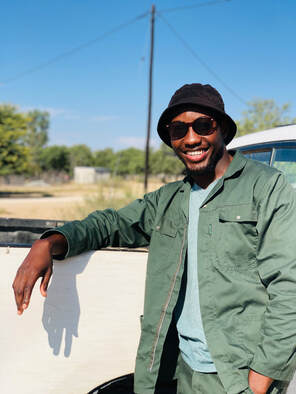
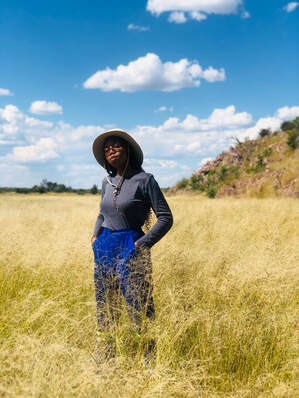

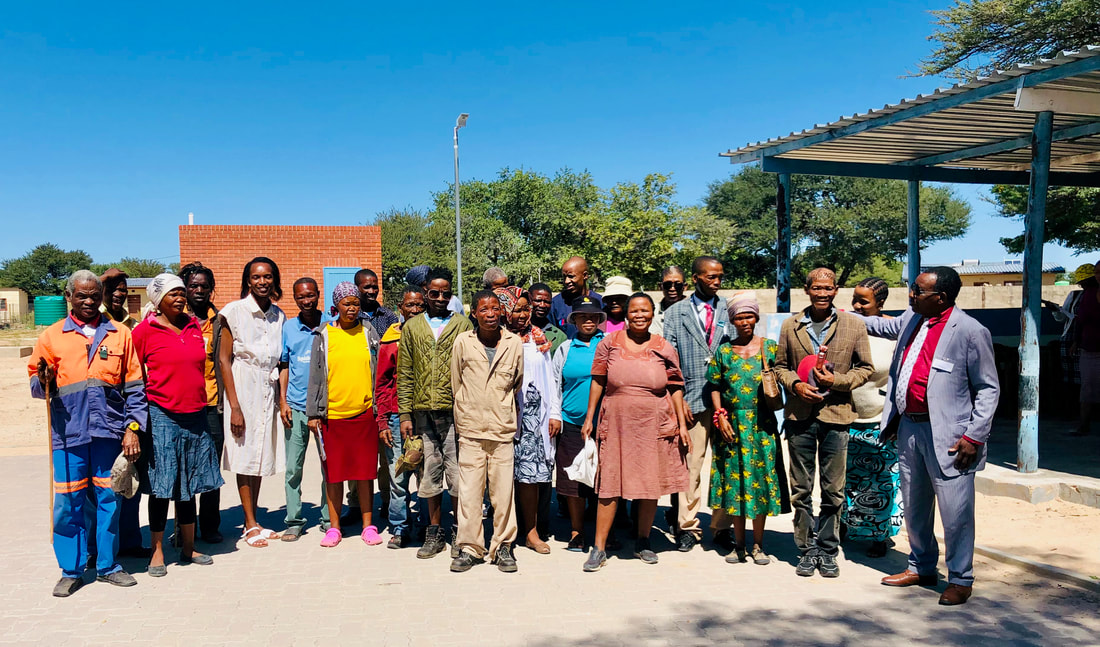
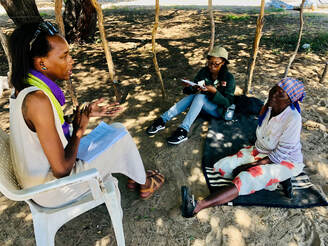
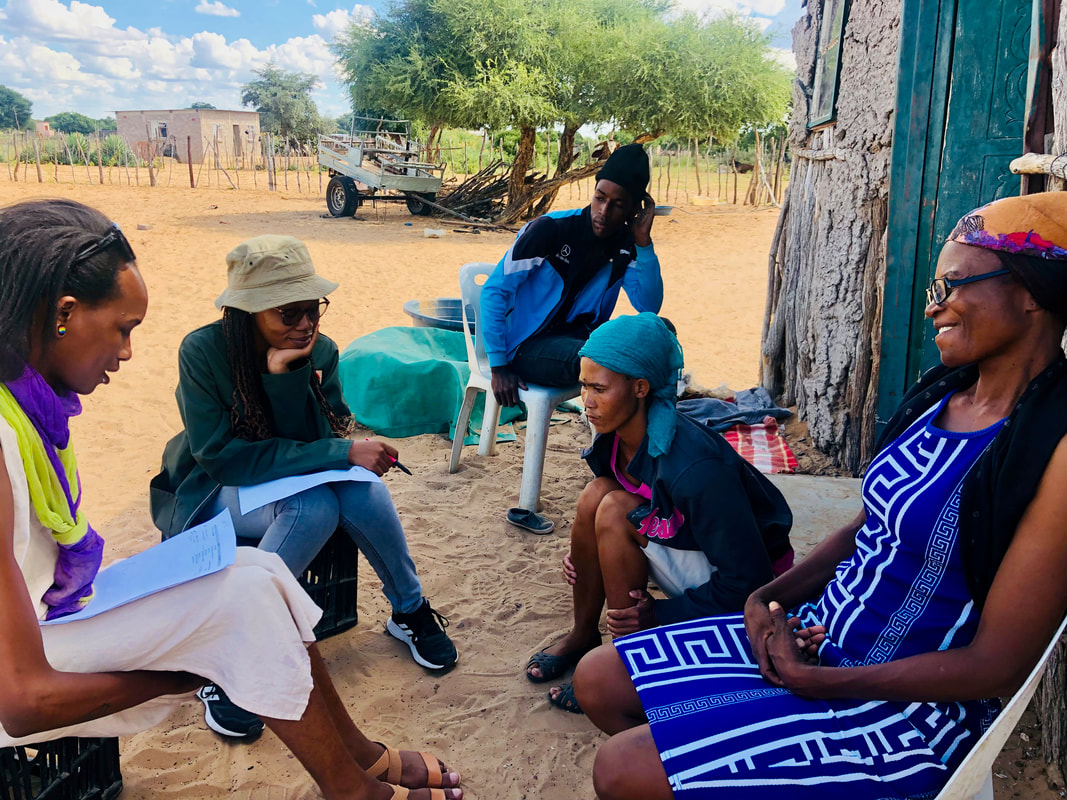
 RSS Feed
RSS Feed
